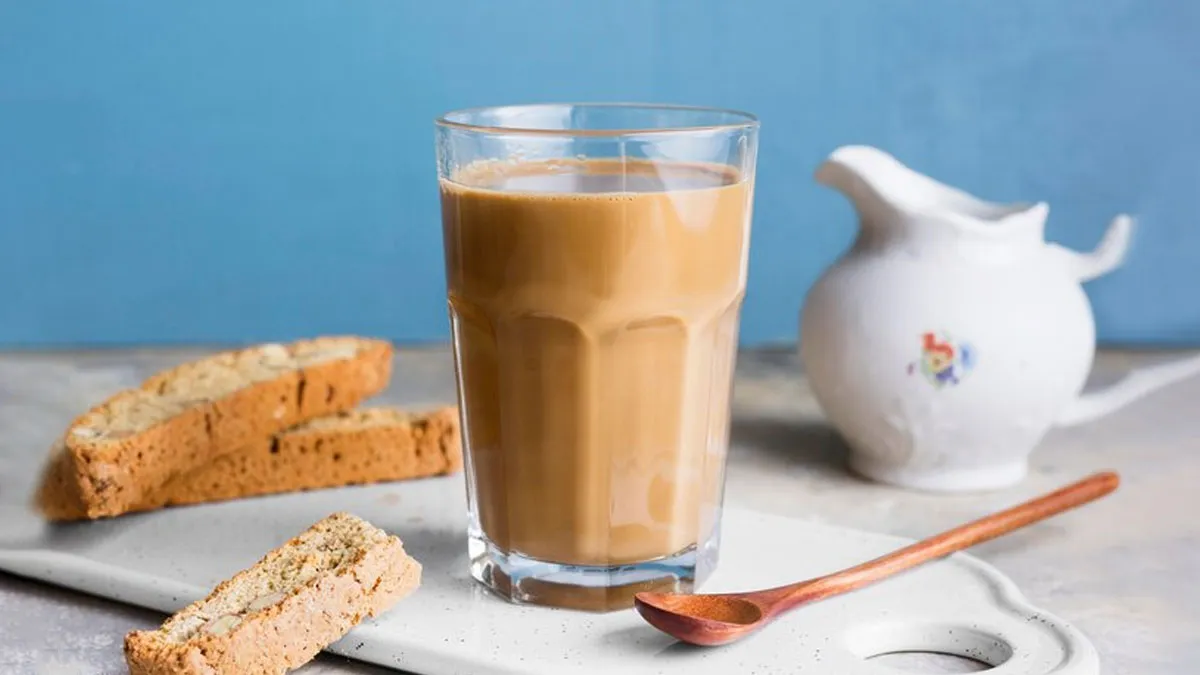
A cup of milk tea is all we want to kickstart our day. The ultimate pleasure beverage somehow changes our mood when we inhale its aroma. Let's admit, we all have our favourite recipes for making milk tea. Some use the usual sugar, milk, tea powder, and water, while many customize it by adding cardamon (ilaichi), ginger (adrak), cinnamon (daalchini), and fennel (saunf), among others. But, did you know excessive milk tea consumption is actually bad for you and poses potential health risks? Ms. Simrat Kathuria, CEO and head dietitian at The Diet Xperts, elaborates more on this.
According to Ms. Kathuria, anything beyond 2-3 cups of milk daily can be hazardous to your health. "Usually, each cup has calories, sugar, and caffeine, all of which can quickly mount up if taken in excess," she says, adding the exact amount depends on the person's lifestyle, food preferences, and caffeine tolerance.
She lists the following five reasons why excessive milk tea is damaging to your system:
Even though the tannin content in tea is reduced when milk is added, it still is significant. The chemical compound is known to make it more difficult for the body to absorb nutrients, especially iron. Because milk tea contains a lot of tannin and dairy, drinking too much of it might cause bloating, gas, and constipation.
There is roughly 30–50 mg of caffeine in each cup of milk tea. If someone's caffeine intake clocks more than 400 mg daily, they may have health problems like anxiety and insomnia. Too much caffeine can lead to addiction and cause jitters and restlessness.
According to WHO, women should not ingest over 25 grams of added sugar per day while it is 36 grams for men. Now, since many milk teas are sweetened, one cup may have 10–15 grams of sugar and 100–200 calories, depending on how it is prepared. Drinking many cups a day can result in an unwanted excess of calories and ultimately weight gain. It may also raise the risk of developing diabetes and obesity.
Don't Miss: Bubble Tea Recipe: Easy Steps To Make Boba Tea At Home
Some may get acne as a result of the dairy in milk tea. It can exacerbate inflammation and cause acne outbreaks when combined with sweets.
Because tea contains caffeine and fluoride, excessive tea drinking can cause calcium to be dissolved from the bones, which over time may weaken bones.
Milk tea is wonderful when had within limits, says the dietitian. These are six steps you can take to enjoy your cuppa and yet maintain your health, as recommended by her:
Limit your daily intake of milk tea to one or two cups. Reduce the amount of sugar or choose unsweetened alternatives.
Green tea, peppermint, chamomile, and other herbal teas are healthier substitutes. They can offer more health advantages and have lower caffeine content.
To stay hydrated and eliminate extra sugar and caffeine, balance your milk tea intake with enough water.
Almond, soy, or oat milk are lower in fat and may be less likely to cause digestive or skin problems than dairy milk.
Consume a lot of fruits, vegetables, and whole grains to make up for any nutritional deficits brought on by drinking too much milk tea.
Moderation is essential, as it is for most things. Treat yourself to milk tea occasionally rather than every day.
"You can enjoy milk tea without sacrificing your health by choosing healthier varieties, being aware of how much you drink, and leading a balanced lifestyle," wraps up Ms. Kathuria.
Don't Miss: Clove Tea For Health: 11 Benefits Of Drinking Laung Tea Everyday
If you liked this story, please share it. For more such articles, stay tuned to HerZindagi.
Our aim is to provide accurate, safe and expert verified information through our articles and social media handles. The remedies, advice and tips mentioned here are for general information only. Please consult your expert before trying any kind of health, beauty, life hacks or astrology related tips. For any feedback or complaint, contact us at [email protected].